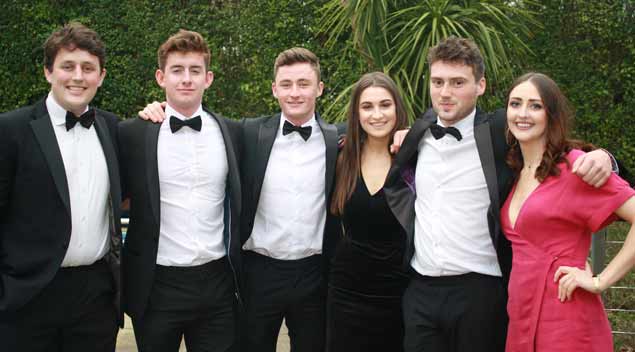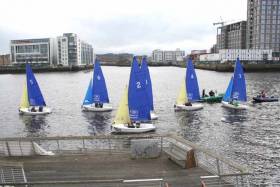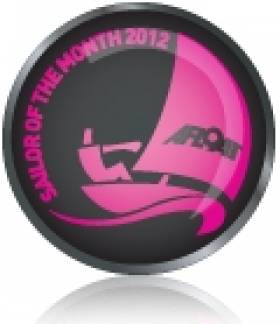Displaying items by tag: UCD Sailing
UCD Sailing Team Success on the Liffey at Annual Colours Match
This years Colours match between UCD Sailing Club (UCD SC) and Dublin University Sailing Club (DUSC) was held on Saturday the 14th of April in Dublin City.
UCD SC successfully brought home the Colours trophy which was won by DUSC at last years Colours. With a newly introduced format as of last years competition the results of all the teams counted, and UCD 2 sealed the deal at the last minute securing the necessary result. UCDSC Commodore Roisin O’Brien along with her committee organised the one day event which took place on the Liffey.
 The UCD2 team left to right: Richard Flood, Daniel Raymond, Jack Higgins (keelboat Captain), Roisin O'Brien (Commodore), Patrick Cahill (Sailing Captain), Fionnuala Cahill
The UCD2 team left to right: Richard Flood, Daniel Raymond, Jack Higgins (keelboat Captain), Roisin O'Brien (Commodore), Patrick Cahill (Sailing Captain), Fionnuala Cahill
This win comes after a successful few weeks for UCDSC, winning the Silver fleet at the IUSA Inter-varsities, won overall by UCC, as well as UCD 1 coming third and attending the BUSA Championships in Scotland. UCD1 and UCD2 came 2nd and 3rd respectively, and UCC came1st, in the IUSA Student Yachting Nationals in Howth Yacht Club where UCC took home the trophy, also organised by UCDSC the weekend previous.
As the college sailing club breaks up for exams and the summer season the students now look forward to what next year brings.
Afloat Sailor of the Month November - UCD Sailing Team
#ucd – Never before have we had ten Afloat.ie/Irish Independent "Sailors of the Month" in the one month. But with Christmas approaching it's time for gifting all round, and the adjudicators have agreed the entire UCD team that clinched the Student Yachting Worlds in France four weeks ago are Sailors of the Month for November.
UCD Sailing Club Captain Cathal Leigh-Doyle made best use of the extensive resources of talent available in Ireland's largest university by taking along a squad of ten, even though the boats used are actually raced by eight.
Ever since they won the right to represent Ireland by taking the national college title in Dun Laoghaire in March, the UCD club's key officers had been keeping an intensive training programme on track. They'd also copped on to the significant fact that you're allowed to deploy substitutes, massively important when the high-scoring overnight offshore race followed immediately after a day of intense inshore contests.
With the points table at a crucial phase, sailing skipper Aidan MacLaverty and tactician Barry McCartin were able to bring on board the fresh energy of the highly experienced Ben Fusco and Ellen Cahill for the marathon overnight contest, and this made for the key contribution to the massive points lead with which the Irish team clinched the world title.
The complete team were Cathal Leigh-Doyle, Aidan McLaverty, Barry McCartin, Ben Fusco, Ellen Cahill, Simon Doran, Bella Moorehead, Alyson Rumball, Theo Murphy and David Fitzgerald, and they did us proud.






























































